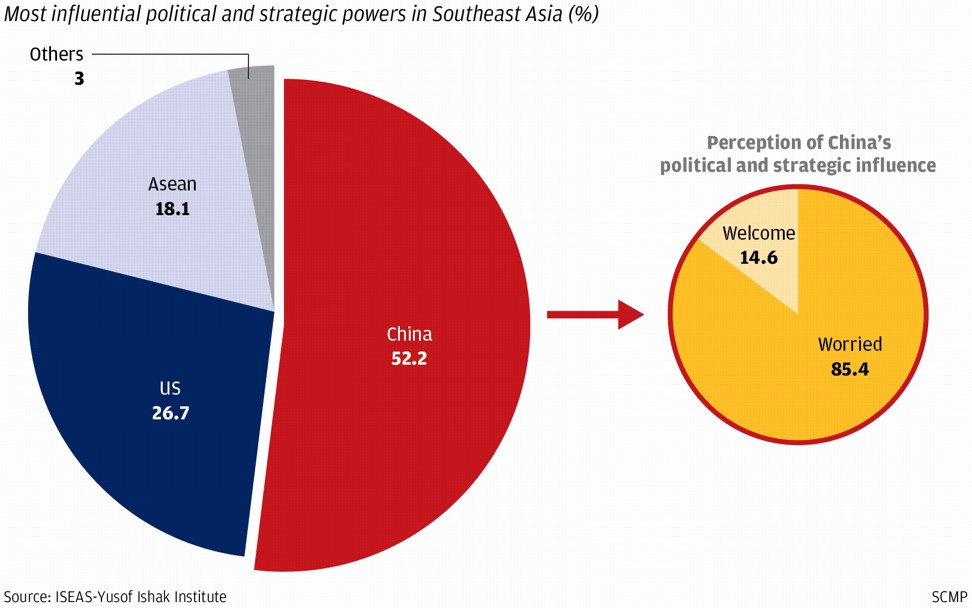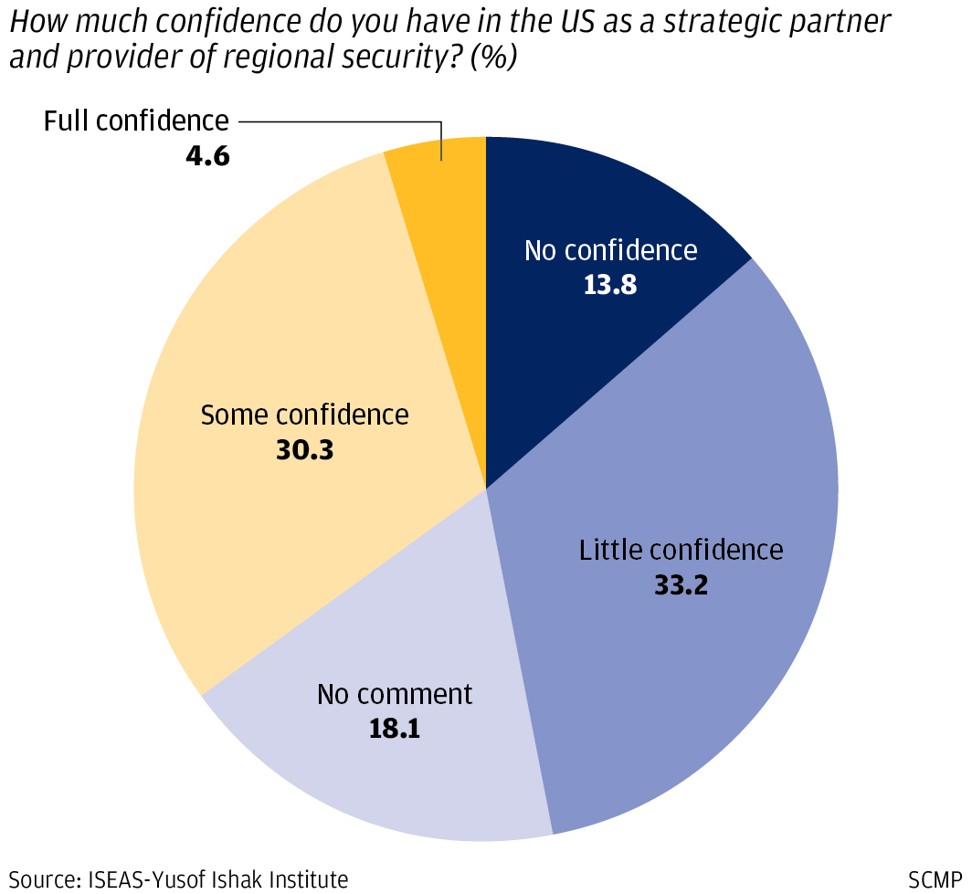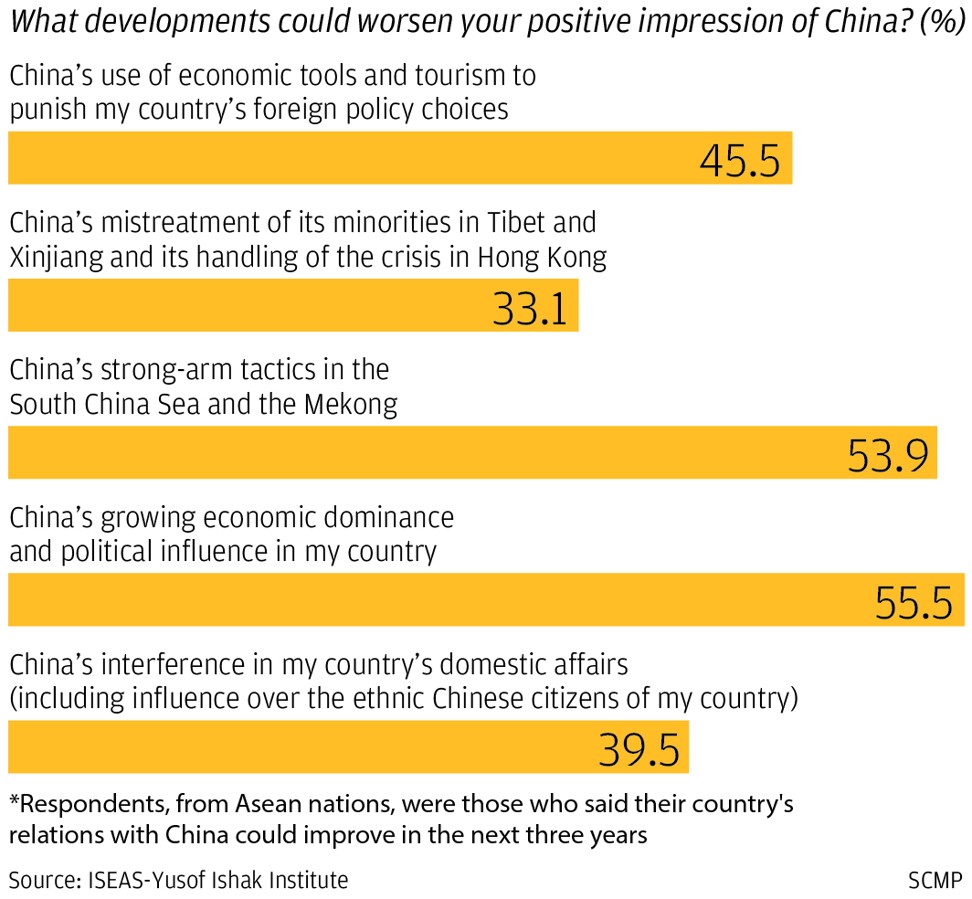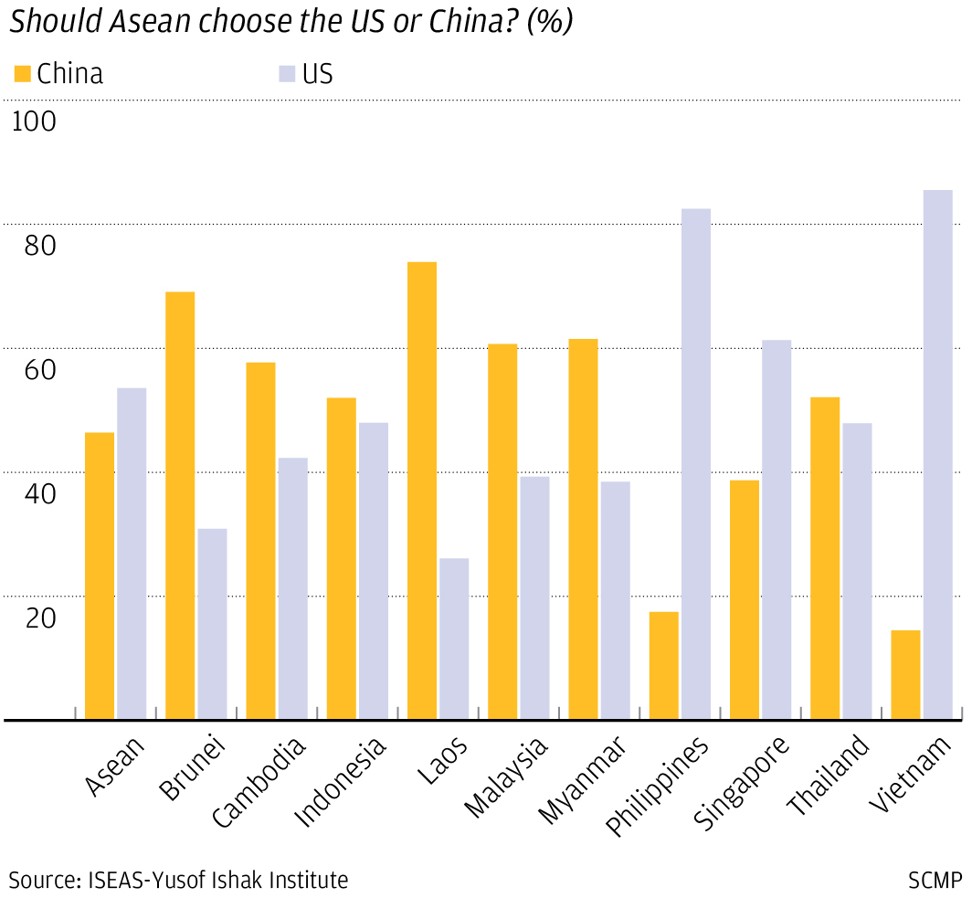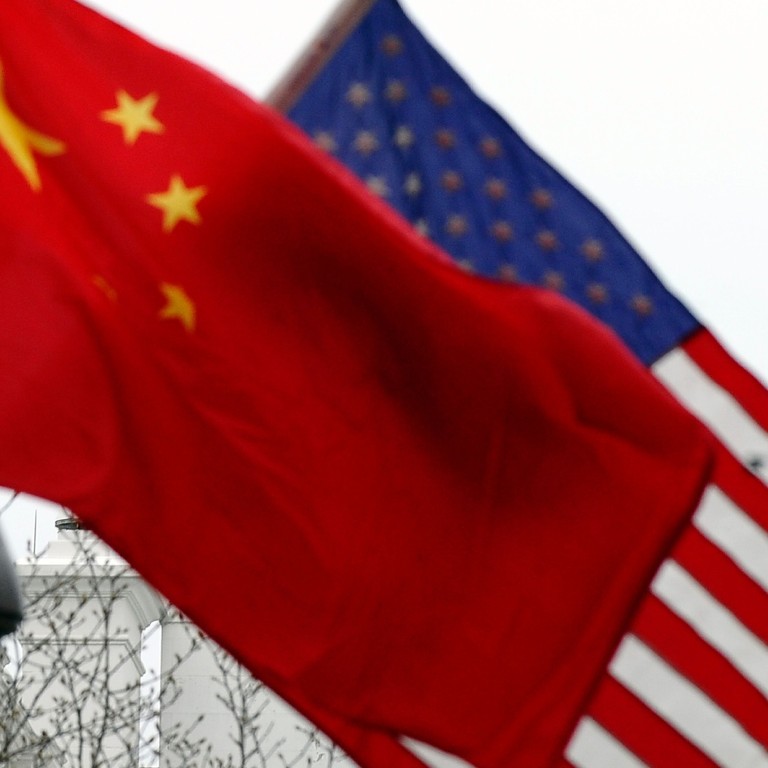
Southeast Asia’s anxiety and disillusionment with US and China deepen: poll by Singapore think tank
- Over 50 per cent of respondents to the ISEAS-Yusof Ishak institute’s annual survey see Beijing as the region’s most influential power – and most are worried
- Meanwhile, 47 per cent have little to no confidence in Washington as a reliable strategic partner and provider of regional security
Of the poll’s 1,308 respondents, 27 per cent said the US was the most influential, though more than half of those in this group said this was welcome.
Those who thought China had the most influence increased from 45.2 per cent last year, while those who gave the US the nod dropped from 30.5 per cent in 2019.
But when asked in a separate question if the US was a reliable strategic partner and provider of regional security, 47 per cent of respondents overall said they had little to no confidence in Washington, up from 34.6 per cent in last year’s survey.
The institute’s researchers, in a report on the survey titled “The State of Southeast Asia”, said this was a useful reminder that “recognising China’s power is not the same as accepting the new reality”.
“In fact, if not handled with due diligence, this may elicit counterbalancing forces to prevent China from becoming the region’s hegemon,” they added.
They also attributed the US’ loss of influence in the region to a “strong trust deficit”.
Respondents to the survey included members of academia, civil society and business professionals, with those aged 40 and above making up close to half of respondents.
Those below the age of 40 were marginally more concerned about the implications of China’s growing might compared with their older counterparts.
Dylan Loh, assistant professor of social sciences at Singapore’s Nanyang Technological University, said views of China were coloured by how its diplomatic and military stance had not been fully in line with its rhetoric of a “peaceful rise”.
“This is particularly so when the region sees China’s heavy militarisation of artificial islands in the disputed South China Sea,” he said.
Loh suggested such events showed how Chinese diplomacy had taken a “biting turn”, adding that they also put forth an impression of how China was a “somewhat overbearing power”.
However, Pan Guang, a professor at the Shanghai Academy of Social Sciences, said he did not think China had been “very aggressive” to countries involved in the territorial disputes.
Describing its stance as “moderate”, he said that Beijing had been peaceful in its approach towards disputes, citing the border agreements it had signed with the likes of Myanmar and Russia.

Pan felt the worry experienced by Asean nations likely stemmed from a perception of China’s strength. “China is a bigger country with a huge population … If a neighbour next to you is very aggressive, and very rich, maybe you would be worried about it,” he said.
Southeast Asia unsure of the value of Asean, new poll shows
A series of “unfavourable developments” reported by mainstream media outlets, including the anti-government protests in Hong Kong and the “re-education camps” in Xinjiang, have created what Loh from Nanyang Technological University said was an “image problem” for China that is hard to shed.
Respondents also demonstrated low trust towards Beijing’s ambitious Belt and Road Initiative to boost global trade and connectivity.
About 64 per cent of those polled said they had little or no confidence towards the infrastructure plan – even those in countries that had received funding from it, such as Malaysia, Myanmar, and Thailand.
“It is also unclear what [are the] long-term deliverables of the [belt and road plan. It] represents more of a vague vision rather than a clear commitment to something concrete,” said Ho, who added that the blueprint seemed to serve China’s own interests.
Across the Asean nations, eight in 10 respondents either had no comment or were pessimistic that China would “do the right thing” to contribute to global peace and security. Countries with the highest level of distrust were the Philippines, followed by Vietnam and Indonesia, while younger respondents had less confidence than their older counterparts.
Militia fishing ships ‘not on agenda’ as Chinese coastguard visits Philippines
Of the 791 respondents who said they had little or no confidence that China would “do the right thing” regarding world peace, more than half said their pessimism stemmed from the sense that China could threaten their country’s interests and sovereignty.
When asked to choose between China and the US if they had to align with one of them, 53.6 per cent said they would side with Washington, even as the survey found most respondents believed US engagement in Southeast Asia had declined under the Trump administration.
Nanyang Technological University’s Loh said this was not exactly the case as the number of Freedom of Navigation operations conducted under the Trump administration had risen compared with the Obama era.
“This should be taken as an indication of greater engagement … but countries do not feel this way because of the mercurial nature of US foreign policy in the region,” he said.
The survey also found increasing doubts towards India’s standing as a major power in Southeast Asia, while Japan came out tops as a responsible stakeholder.
Pan from the Shanghai Academy of Social Sciences added that while the US had more of a “military role” in Southeast Asia, China had political and economic influence in the region.
He hoped that ties between Asean nations and China would warm, given how Chinese President Xi Jinping was paying more attention to ensuring good ties by paying bilateral visits to the bloc’s member countries.
Regional summits and forums would also help to mend differences and build confidence among countries, Pan said. “All these mechanisms will bring [us] together. We sit down and settle things through talks and not through war. Nobody wants to go to war.”


